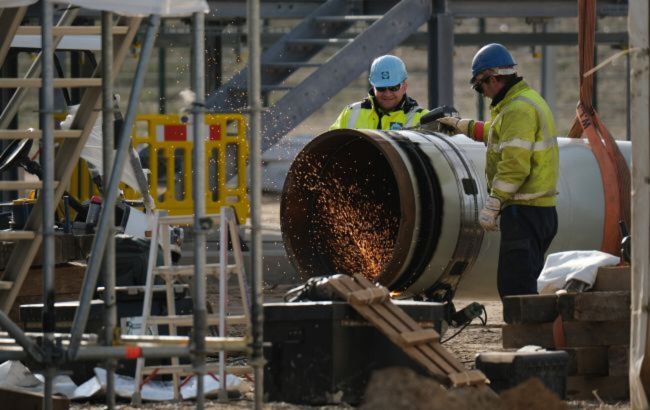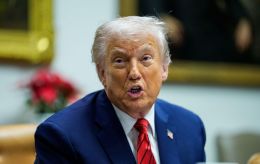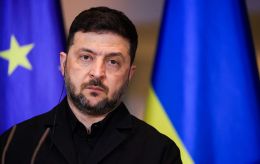Russia leans toward ceasefire as EU threatens to block Nord Stream 2
 Illustrative photo: workers constructing the Nord Stream 2 pipeline (Getty Images)
Illustrative photo: workers constructing the Nord Stream 2 pipeline (Getty Images)
European allies of Ukraine are threatening to permanently block Nord Stream 2 if Moscow refuses to agree to the 30-day ceasefire proposed by the United States, according to The Wall Street Journal.
During the summit of European leaders in Kyiv on May 10, European Commission President Ursula von der Leyen said that in addition to blocking the Nord Stream 2 pipeline project, the EU will also double the number of vessels sanctioned for transporting Russian oil - a move mirrored by the UK earlier this week.
European leaders aim to leverage President Trump’s Thursday statement that Washington will impose sanctions on any party in the three-year conflict that refuses to implement a 30-day ceasefire. According to the White House, the truce must be unconditional and could serve as a foundation for a lasting ceasefire and a sustainable peace agreement between Ukraine and Russia.
Russian Foreign Minister Sergey Lavrov said the Kremlin raised the issue of restoring Nord Stream during talks with the Trump administration in the context of improving economic relations between Moscow and Washington. However, EU sanctions would effectively block any attempts to resume gas deliveries through that route.
The Nord Stream 2 pipeline, completed despite the 2014 annexation of Crimea, became a symbol of deepening economic ties between Germany and Russia. The project was heavily criticized by Ukraine, Eastern European countries, and the first Trump administration, which imposed sanctions on it, arguing it made Germany overly dependent on Russia.
Although construction was completed in 2021, the pipeline was never certified due to Russia’s aggression against Ukraine. Later, the operating company was sanctioned by President Joe Biden’s administration.
According to European officials, von der Leyen discussed the idea of sanctions against Nord Stream 2 with new German Chancellor Friedrich Merz during his visit to Brussels on Friday. The measure would require the unanimous approval of all EU member states. It would be separate from the bloc’s new sanctions package and could be implemented if Russia refuses to comply with the ceasefire.
Summit of Coalition of Willing and pressure on Kremlin
On Saturday, May 10, leaders from the UK, Germany, France, Poland, and the EU arrived in Kyiv for talks with Ukrainian President Volodymyr Zelenskyy.
After meeting with European leaders, Zelenskyy confirmed Ukraine’s readiness for a 30-day ceasefire starting May 12. European officials urged the Trump administration to increase pressure on Russia to force a halt to the war. During the summit, a de facto deadline was given to Moscow to agree to the ceasefire.
Russia said it could agree to a month-long truce but demanded a halt to Western arms supplies to Ukraine. Moscow has repeatedly rejected peace initiatives proposed by the US and supported by Ukraine, insisting on addressing the "root causes" of the conflict.
The European leaders’ visit to Kyiv came after President Putin hosted Chinese leader Xi Jinping and other allies at the Victory Day parade in Moscow. The Kremlin has been increasingly vocal about support from its allies, recently acknowledging military aid from North Korea.
Additionally, this week, the EU intensified economic pressure on the Kremlin by publishing a plan to reduce Russian energy imports by 2027. The document envisions a ban on short-term gas contracts starting at the end of 2025 and the phase-out of long-term contracts by 2027. Last year, Europe spent around €23 billion on energy imports from Russia.

